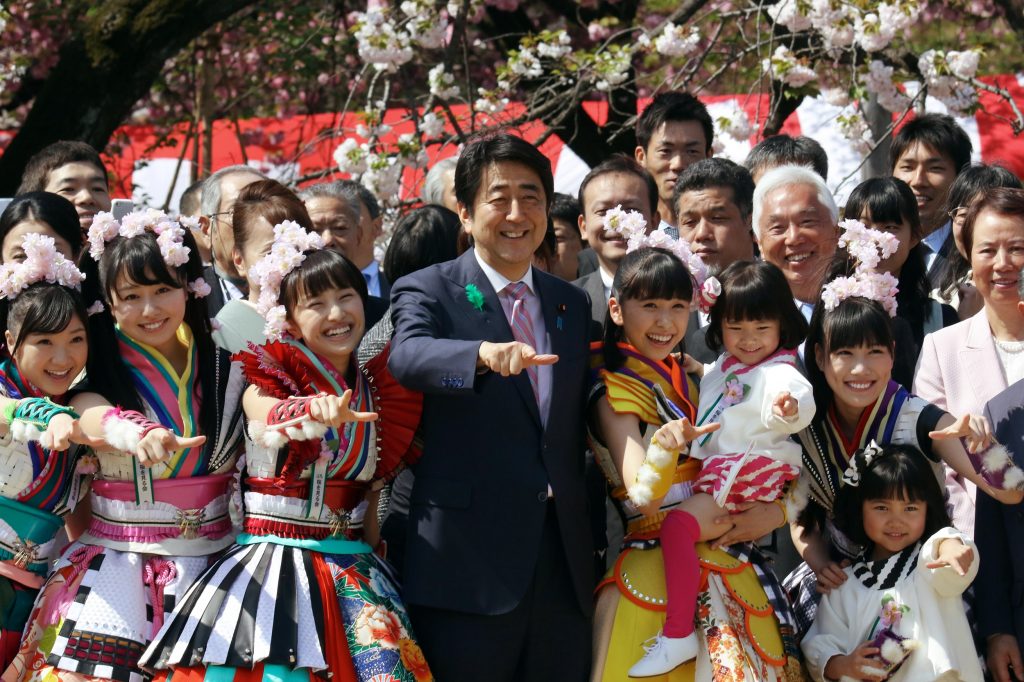
- ARAB NEWS
- 04 Jul 2025

Tokyo
Japanese Prime Minister Shinzo Abe admitted Wednesday that he has been involved in his office’s recommendations of guests for government-funded annual cherry blossom-viewing parties hosted by him.
He had previously denied such involvement. Opposition forces criticized Abe for mixing public and private affairs.
Abe has faced allegations that he has used the publicly funded parties for his own benefit by inviting many of his supporters.
At a plenary meeting of the House of Councillors, the upper chamber of parliament, Abe said his office sought applications from people who wished to attend the parties after a request from the Cabinet Secretariat to recommend guests for the gatherings.
“I myself sometimes expressed opinions about who should be recommended (for the parties) when asked by the office for advice,” Abe said.
The prime minister was speaking about the cherry blossom-viewing parties at a parliamentary session for the first time since his comments at a budget committee meeting of the Upper House on Nov. 8.
“I greet and welcome (guests) as host but am not involved in the selection of guests,” Abe said at the Nov. 8 meeting, referring to the events.
On Wednesday, he said, “I wasn’t involved at all in the final selection (of guests) by the Cabinet Secretariat and the Cabinet Office.”
Abe noted that he has organized a dinner party for his supporters on the eve of the annual event since 2013.
In 2015 the dinner party was held at a hotel different from the ones where the participants were staying, Abe said, adding that the participation fee was kept unchanged at 5,000 yen from earlier years after negotiations with the hotel.
Opposition parties have claimed that the price was too low for a dinner party at an upscale hotel in Tokyo and expressed suspicion that the Abe side may have partially covered the events’ costs in violation of the public offices election law.
On Friday, Abe told reporters that the participation fees for the dinner parties were set by the hotel side as many participants stayed at the same hotel.
On his accountability for the cherry blossom-viewing parties, Abe told reporters prior to Wednesday’s Upper House plenary session, “The people will make a judgement.”
Separately, Chief Cabinet Secretary Yoshihide Suga said at a meeting of the Cabinet Committee of the House of Representatives, the lower chamber, that Abe had a recommendation quota of some 1,000 guests to attend a cherry blossom-viewing party.
“We regret that the number (of guests) grew as years went by,” Suga said.
According to Suga, there was also quotas of some 6,000 guests recommended by people linked to Abe’s ruling Liberal Democratic Party and some 1,000 guests recommended by the deputy prime minister and senior officials of the prime minister’s office.
Shoji Onishi, councillor at the Cabinet Secretariat, said that Abe’s wife, Akie, recommended guests during the Abe office’s process of seeking participants from a broad range of people.
But Suga denied that she has been involved in the guest selection process.
Jun Azumi, parliamentary affairs chief of the major opposition Constitutional Democratic Party of Japan, told reporters that the first lady is “highly likely to have invited her friends” to the cherry blossom parties.
She confused public and private matters and used public funds for private purposes, Azumi claimed.
Jiji Press